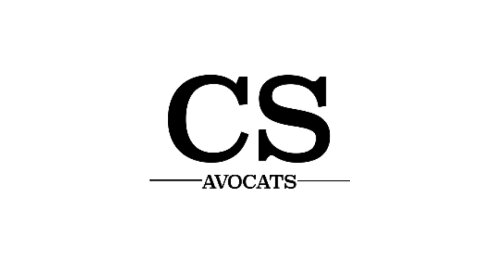Best Whistleblower & Qui Tam Lawyers in Beauvais
Share your needs with us, get contacted by law firms.
Free. Takes 2 min.
List of the best lawyers in Beauvais, France
About Whistleblower & Qui Tam Law in Beauvais, France
Whistleblower and Qui Tam laws in Beauvais, France, are designed to protect individuals who report illegal activities or fraud, particularly within organizations receiving government funds. These laws provide mechanisms for whistleblowers to report misconduct and potentially receive a portion of the recovered funds if the government successfully prosecutes the case. While Qui Tam suits are primarily associated with the United States, where individuals can sue on behalf of the government, similar concepts are gaining traction in France under broader European Union directives and national regulations.
Why You May Need a Lawyer
Individuals may require legal assistance in whistleblower or Qui Tam scenarios for several reasons. Navigating the complex legal landscape can be challenging without professional help. A lawyer can provide guidance on whether a whistleblowing claim is likely to succeed and ensure compliance with proper procedures to protect the whistleblower's rights. Additionally, legal professionals can help negotiate settlements or represent whistleblowers in court, particularly if facing retaliation from employers. Understanding the intricate details of the case, potential impacts, and protective measures usually necessitates expert legal advice.
Local Laws Overview
In Beauvais, as part of France, whistleblower protections are governed by both national and EU legislation. The Sapin II Law, a significant piece of legislation in France, provides a framework for whistleblower protections, ensuring confidentiality and protection from retaliation. Whistleblowers are encouraged to report initially internally, but they can approach external authorities if necessary. While France does not have a Qui Tam system identical to the United States, whistleblowers are still encouraged to report public interest concerns. Employers are required to establish procedures for handling whistleblower reports, ensuring transparency and fairness.
Frequently Asked Questions
What qualifies as a whistleblower case in France?
A whistleblower case typically involves reporting illegal or unethical conduct within an organization, often related to corruption, fraud, or health and safety violations. The report should serve the public interest.
Do whistleblowers receive any financial incentives in France?
While France does not have a system of financial incentives akin to the U.S. Qui Tam provisions, some European initiatives are moving towards rewarding whistleblowers in particular cases.
How can a whistleblower protect themselves from retaliation?
Under French law, whistleblowers are protected from retaliation by employers, including unfair dismissal or discrimination. Legal counsel can help ensure these protections are enforced.
Is confidentiality guaranteed for whistleblowers in France?
Yes, confidentiality is a critical aspect of whistleblower protection under the Sapin II Law, ensuring that their identity is protected during and after the investigation.
Can whistleblowers report misconduct anonymously?
Whistleblowers can choose to report anonymously, but revealing their identity can sometimes be necessary for thorough investigations and receiving certain protections.
What should I do if I am retaliated against for whistleblowing?
Contact a qualified lawyer immediately to explore legal actions that can be taken against the retaliatory measures. French law provides multiple avenues to protect your rights.
Are there specific procedures to follow when reporting misconduct?
Yes, internal reporting procedures should be followed first, unless the situation demands external reporting immediately, as outlined under the Sapin II Law.
Will I have to appear in court if I blow the whistle on something?
Not necessarily. Many whistleblowing cases are resolved without going to court, but legal counsel can prepare you for any eventuality, including potential court appearances.
Who can I report to outside my organization?
If internal channels are not appropriate, reports can be made to professional bodies, unions, or relevant governmental bodies overseeing the issue of concern.
Is whistleblowing considered a breach of confidentiality agreements?
French law provides protections for whistleblowers acting in good faith, which typically override confidentiality agreements related to covering up misconduct.
Additional Resources
Those seeking more information or needing to report an issue can contact the French Anti-Corruption Agency (AFA) or refer to resources provided by European and international bodies such as Transparency International. Legal aid, local advocacy groups, and professional associations are also valuable resources.
Next Steps
If you find yourself in a situation requiring legal assistance in whistleblower or Qui Tam cases, it is advisable to consult with a legal professional experienced in this field. Begin by gathering all relevant documentation and specifics of your case. Reach out to professionals via local law firms or bar associations in Beauvais for consultations and representation. Taking these informed steps will ensure your rights are protected and your concerns are appropriately addressed.
Lawzana helps you find the best lawyers and law firms in Beauvais through a curated and pre-screened list of qualified legal professionals. Our platform offers rankings and detailed profiles of attorneys and law firms, allowing you to compare based on practice areas, including Whistleblower & Qui Tam, experience, and client feedback.
Each profile includes a description of the firm's areas of practice, client reviews, team members and partners, year of establishment, spoken languages, office locations, contact information, social media presence, and any published articles or resources. Most firms on our platform speak English and are experienced in both local and international legal matters.
Get a quote from top-rated law firms in Beauvais, France — quickly, securely, and without unnecessary hassle.
Disclaimer:
The information provided on this page is for general informational purposes only and does not constitute legal advice. While we strive to ensure the accuracy and relevance of the content, legal information may change over time, and interpretations of the law can vary. You should always consult with a qualified legal professional for advice specific to your situation.
We disclaim all liability for actions taken or not taken based on the content of this page. If you believe any information is incorrect or outdated, please contact us, and we will review and update it where appropriate.








